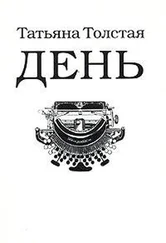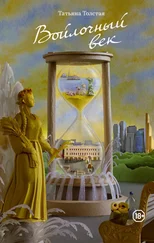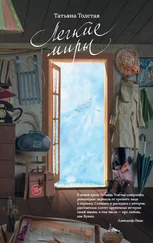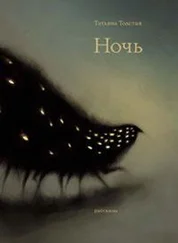It was as if he were a proud soldier of some Postal State, a humorless Government Agent in awe of Postal Work as if it were some lustrous Project, or a System that—like the lymphatic or nervous—was responsible for the smooth operation of the body politic. And for us—the temporary and the carefree—he, to say the least, lacked respect. Perhaps he imagined himself some Old World official, circa 1808, in the newly designed livery of His Majesty the Tsar’s Royal Post Office: a dark-green kaftan with a black collar and black cuffs, buttons adorned with a crossed anchor and ax. That’s how I perceived him, anyway, and upon spotting him from afar in the sparse summer crowds—thin, back straight, walking his route—I would think: There, through the careless and laughing masses, comes the Government itself, advancing sternly and with measured step, smelling of sealing wax, burlap cords, ink, and rubber stamps.
He showed me his diagrams without quite sharing them, never letting them out of his hands—If you need ’em, pound the pavement and make your own—as if he were privy to State Secrets, schematics of railroads, blueprints of underground factories, floor plans of strategic granaries. He would not surrender them to either a friend or the Enemy. If a bullet or death claimed him, he’d quickly chew up and swallow his little book, the ink from its pages dripping into his stiffening larynx.
Petrogradsky Island had many beautiful buildings not yet entirely lifeless despite it all: the blockade, Soviet poverty, the specters of those who were unjustly arrested and dragged away, on wobbly legs down battered steps. One building had a fireplace in the lobby; it had just sat there neglected and cold since prerevolutionary days. There must have been a time when the fireplace was lit—a time when there was a carpet lining the staircase, at least up to the second or third floor; when the entryway smelled of coffee and vanilla; when the building was warm, and there was a mustachioed concierge; when the elevator was a box of light in the filigreed wrought-iron shaft. Now the fireplace was but a grave pit covered in green paint, like the rest of the lobby—green oil paint right over the old marble.
Most of the apartments were, of course, communal, every front door studded with a cluster of doorbells, some dating back to the turn of the century—a flat brass knob the size and shape of half a butterfly, with a sign encircling it that read “Please Turn.” Those were mechanical doorbells, not electric. I knew how they worked—our friends had one at their apartment. From that half butterfly a wire ran up to the ceiling, where a brass strip with a little bell attached to it stuck out from the wall. If you turned the butterfly, the bell would ring. (When people found out that brass contains copper—a valuable material—all those sweet “Please Turn” signs were ripped out by their roots and sold for scrap metal; the brass doorknobs were unscrewed from the doors but were too good for scrap—they filled up antique shops. What beautiful doorknobs they made in 1914! Lilies and water plants—not just plain old handles.)
One door had a particularly remarkable doorbell: a glass box with the owner’s name underneath it, and when you rang, a light went on inside the box, illuminating a sign that read “Heard It. Coming.” They can hear me! They’re coming! What lovely people! And if there was no one there, it would read “Sorry. Not Home.” I asked the young lady who opened the door: “How do the signs switch?” Apparently they were connected to a lock cylinder on her door inside the communal apartment. Upon leaving she’d turn the key and, presto chango: “Sorry. Not Home.” How splendid!
You deliver a telegram to the end of the route—a kilometer there and a kilometer back—and there is a new one waiting for you at the post office. Got to return the same way. I was eighteen: I wanted to bring rationality and order to the postal system, if not to the entire world. I wanted to be useful. I’d say to my boss: “Why should I rush to deliver this arrival telegram when this person isn’t actually arriving for another week? And everybody is at work during the daytime anyway. Let me accumulate, say, ten telegrams, and walk the route in a few hours. It’ll be more fun for me, and the post office will save money!” But she’d fearfully reply: “No, no, we can’t; the instructions are to deliver immediately.” She was a jittery and anxious woman.
One sunny and beautiful June morning—dewy, filled with birdsong and lilac trees—I saw her hurriedly walking to work, hunched over, eyeglasses pointed forward, not seeing anything beyond her governmental concerns, arms dangling limp like ropes in front of her. She had trouble sleeping; mornings did not bring her joy: To hell with morning dew, birds be damned, lilacs be burned. There are instructions, and people keep trying to deviate from them. How does one keep track? How does one restore order? You can’t check up on everyone! You can’t follow them down route one and route two simultaneously! And there is also a secret organization to deal with: SIGMA! Coded governmental communiqués arrive via the telegraph wire. Painful though it is, one is forced to entrust these ultrasecret telegrams to a frivolous coquette. What if the enemy, you know, does something or other? Maybe it’s best to wait half an hour for the cripple from route two and entrust the Government Secret to him. He’s a soldier! He wears a uniform! But waiting is forbidden! The instructions say IMMEDIATELY! Ay, there’s the rub.
The boss lady would hand me a carefully sealed telegram for SIGMA, and I was to march straight to the checkpoint at the gates, deliver this Government Secret wordlessly to a watchman with a rank of no less than colonel, and likewise without a word accept a countersigned receipt, before marching straight back. She’d squeeze my hands in her icy grip, looking deep into my eyes with apprehension and distrust: Will you deliver? You won’t let me down, will you? Can I trust you?
She’d watch me go, her teeth chattering anxiously, but never did it come to pass that I crossed over to the enemy lines through an underground passage, taking secret ciphers and codes with me.
Meanwhile, all the locals, as is often the case, knew perfectly well what lurked behind those unmarked walls—the Institute of Applied Chemistry, where poisonous liquids and explosives were developed, polluting the water and soil of one of the most beautiful parts of town for decades to come. For those of you unfamiliar with our topography: here, right in the city center, is the Pushkin House (also known as the Institute of Russian Literature), and there—just across the river—metal barrels filled with sarin and soman or whatever, some type of mustard gas. Unmistakably Soviet city planning.
First time I went there, I got lost: What do you do when there is no sign and no address? “Do you happen to know where SIGMA is?” I asked the first person I came across. “Oh, the Institute of Applied Chemistry? Just cross over there and walk along the fence—that’s where the checkpoint is!” It goes without saying that I’d fold over a corner of the telegram, peek behind the safety seal, and read the secrets sent from Central Command via such insecure channels. Anybody would have done the same. Alas, it contained nothing of interest.
Luckily, on the other side of Kronverksky Avenue there was a zoo, peaceful and overflowing with white and purple lilac trees, and occasionally I would deliver there, too. First, some men had caught a bear cub in the Altai Mountains and wanted to see if the zoo had any need for it. Then, for some reason, a telegram arrived declaring that sixty blankets had been stolen. What blankets? Who could have stolen them? And from where? What did this have to do with the zoo? These were bits and pieces of other people’s stories, a scattered mosaic, a peek into other people’s lives—a little cloud of music drifting from a window, laughter coming from an open door, a corner of a room glimpsed through a slit in the drapes. Somewhere in the vicinity lived my most mysterious addressee, a certain Konkordia Drozhzheyedkina. How old was she? What had her parents been thinking with that name? Was she happy? Did she see from her window the white night outside, the alleyways covered with transparent haze and twilight-colored bushes? Whom does she love? Who loves her? And me, whom do I love?
Читать дальше






